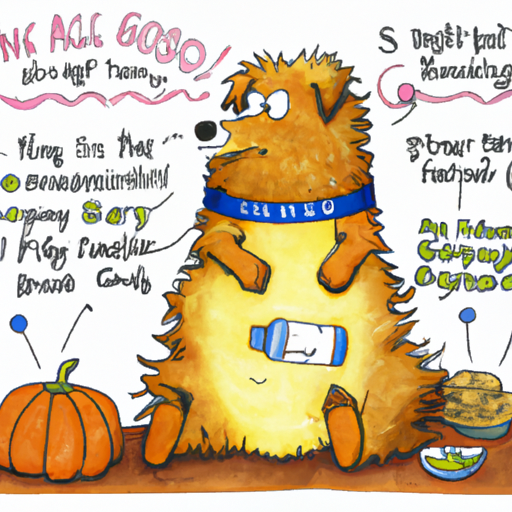Understanding Canine Flatulence
As a loving and responsible caregiver, it’s essential to understand that while occasional gas is normal for your furry friend, frequent or excessive flatulence can be a sign of a more serious health issue.
Dogs, like humans, can experience gas due to a variety of reasons – from swallowing air while eating too quickly, to more complex issues like digestive disorders.
Diet: The Key Culprit
The primary factor influencing your dog’s flatulence is their diet.
- Highly processed foods: Foods that are high in carbohydrates, particularly those that are not easily digestible, can cause excessive gas in dogs.
- Dairy products: Many dogs are lactose intolerant, which means dairy products can lead to gas or other digestive issues.
- Spicy food: While you might enjoy a bit of heat in your meals, your dog’s stomach may not handle it as well, leading to gas.
A table detailing some common foods that can cause gas in dogs:
| Food Type | Examples | Reasons for Gas |
|---|---|---|
| Highly processed | Dog kibble, | Difficult to |
| foods | canned dog food | digest |
| Dairy | Milk, cheese | Lactose |
| intolerance | ||
| Spicy foods | Human food | Difficult to |
| with spices | digest |
Natural Remedies to Try
- Probiotics: Adding a high-quality canine probiotic to your dog’s diet can help restore the balance of good bacteria in their gut, promoting better digestion and reducing gas.
- Slow-Feed Bowls: These are designed to slow down your dog’s eating, which can reduce the amount of air they swallow and, in turn, the amount of gas they produce.
- Regular Exercise: Regular walks and playtime can help stimulate your dog’s digestion and reduce gas.
When to Seek Veterinary Help
If your dog’s gas is accompanied by other symptoms such as diarrhea, vomiting, loss of appetite, or weight loss, it’s time to seek veterinary help. These symptoms could indicate a more serious underlying condition such as a gastrointestinal disorder.
Frequently Asked Questions
Q: Can I give my dog human antacids for gas?
A: No, it’s not recommended to give your dog human medication without consulting a vet.
Q: Can a change in diet cause gas in dogs?
A: Yes, sudden changes in diet can cause digestive upset including gas.
Q: Are certain breeds more prone to gas?
A: Yes, brachycephalic breeds like Bulldogs and Boxers are more prone to gas due to their short noses and propensity for swallowing air.
Q: Can gas in dogs be a sign of something serious?
A: Yes, if it’s excessive or accompanied by other symptoms, it could indicate a more serious health issue.
Remember, as a caregiver, it’s your responsibility to ensure your pet’s well-being. Regular vet check-ups, a balanced diet, and plenty of exercises are essential in keeping your dog healthy and happy, and can go a long way in preventing issues like excessive gas.



